Literary Worlds and Deleuze
Literary Worlds and Deleuze
Expression as Mimesis and Event
Zornitsa Dimitrova
LEXINGTON BOOKS
Lanham Boulder New York London
Published by Lexington Books
An imprint of The Rowman & Littlefield Publishing Group, Inc.
4501 Forbes Boulevard, Suite 200, Lanham, Maryland 20706
www.rowman.com
Unit A, Whitacre Mews, 26-34 Stannary Street, London SE11 4AB
Copyright 2017 by Lexington Books
All rights reserved. No part of this book may be reproduced in any form or by any electronic or mechanical means, including information storage and retrieval systems, without written permission from the publisher, except by a reviewer who may quote passages in a review.
British Library Cataloguing in Publication Information Available
Library of Congress Cataloging-in-Publication Data Available
ISBN: 978-1-4985-4437-5 (cloth : alk. paper)
ISBN: 978-1-4985-4438-2 (electronic)
 TM The paper used in this publication meets the minimum requirements of American National Standard for Information Sciences Permanence of Paper for Printed Library Materials, ANSI/NISO Z39.48-1992.
TM The paper used in this publication meets the minimum requirements of American National Standard for Information Sciences Permanence of Paper for Printed Library Materials, ANSI/NISO Z39.48-1992.
Printed in the United States of America
Acknowledgments
This book started out as a doctoral thesis defended at the English Department of the Westflische Wilhelms-Universitt Mnster in January 2015. I thank Prof. Dr. Klaus Stierstorfer at the University of Mnster for the ongoing support of the project across its various stages. I also thank Prof. Dr. Hanjo Berressem at the University of Cologne and Prof. Dr. Mirjam Schaub at HAW Hamburg for their sharp comments and excellent guidance. I would like to extend my thanks to the acquisition editor at Lexington Books, Lindsey Porambo, her team, and the anonymous reviewers for their professionalism in bringing this work to completion. My thanks cannot be complete without Sebastian J. Golla who is responsible for long discussions and cheerful suggestions. Finally, I thank my parents and my sister Snezhina for their generosity, kindness, and loving patience.
Introduction
Surface and Depth
In the opening of his Mimesis (1946), Erich Auerbach delineates two possible ways of describing a literary world. At first, Auerbach confronts us with an episode from the Odyssey. Here Homer summons the figure of Euryclea who, while washing the feet of a weary traveler, suddenly recognizes her long-lost master. Along with the vehicle of the recognition, a scar on Odysseys foot, a past hunting episode is evoked to gain an equally vivid presence. Various other evocations of past episodes and innumerable details frame the Odysseys scar tableau. This multiplicity is supplied at once, in a gesture of simultaneity reminiscent of the endlessness and circularity of mythological narratives. The short episode is organized in such a way that it suffices to generate the picture of a world engrossed in particularities: Clearly outlined, brightly and uniformly illuminated, men and things stand out in a realm where everything is visible; and not less clearwholly expressed, orderly even in their ardorare the feelings and thoughts of the persons involved (Auerbach 1946, 12).
Everything happens in the open, thought and emotion are subjected to a rigorous account: With the utmost fullness, with an orderliness which even passion does not disturb, Homers personages vent their inmost hearts in speech; what they do not say to others, they speak in their own minds, so that the reader is informed of it (5). Actions and events are presented to the epic listener in a continuous and ever flexible connection... their relationships... are brought to light in perfect fullness (5) without even a touch of involvement on behalf of the narrator. The epic speaker has put everything upfront, impassively connecting series of events and reporting on all doings, past and present, significant and minor, with an equal precision.
The Homeric world opens up complete, seamless, fully fleshed out. Not only events of significance, but also detailstokens of realist authenticitystep forward fully foregrounded. Everything happens at once: parallel occurrences in the realms of gods and humans are presented on the same surface, without any touch of disequilibrium. Should there arise a need for an explanatory account, directions are given accordinglyby equally well-illuminated stock epithets attached to the proper names of gods and heroes. It is a world completely graspable, entirely visible, and enveloped in actualized pasts and futures: Here is the scar... and Homers feeling simply will not permit him to see it appear out of the darkness of an unilluminated past; it must be set in full light, and with it a portion of the heros boyhood... (4). Homers style is such as to represent every item of the depicted worlds as a complete externalization, relating to a fully accountable past that consistently, and in line with all laws of causation, merges into an unproblematically open present. Spatiality has been approached with an equal explicatory zeal, and, as Auerbach remarks, Nor do psychological processes receive any other treatment (5). The world of Auerbachs Greeks is meticulously organized and of complete visibility. Characters extend into a continuous past and an ever-present future, becoming fully explicated.
Then Auerbach provides a contrasting episode from the Old Testament. A realm of hidden relations reveals itself in the following passage from Genesis 22: 1: And it came to pass after these things that God did tempt Abraham, and said to him, Abraham! and he said, Behold, here I am (6). This excerpt strikes us as unusual, proceeds Auerbach. The sense of a secret permeates its sentences. More is concealed than revealed, as if an all-encompassing background lies in ambush and informs every actuality. An address and a response is all that is exposed. No further directions are given: as if everyone is expected to be aware of, to always already have witnessed the episode. Nothing comes as a surprise, the story evolves regardless of pasts and futures, no additional information is offered. Just as Auerbach notes, the actual doings of this world happen elsewhere, decisions have long since been made, commands have been given, and all that is left is to provide an accounta minimal story stripped to its bare essentials.
When contrasted to the Greek excerpt, the Old Testamental passages become all the more unusual and removed from our received notions of what a narrative is. Deliberate scarcity replaces the lucidity of the Greek exposition. Neither God nor Abraham receives any characterization; their pastsif anyremain hidden, epithets are lacking. The appearance of a personage within the narrative takes place suddenly, as Auerbach informs us, out of a groundless depth, without an origin or a direction to be oriented toward. Even the syntactic markers are oftentimes broken and words only emerge within larger gaps. These isolated words are just barely enough to construct a story. And all the while everything said and done is enveloped by the incomprehensibly absent presence that the Old Testamental God is. This reality is carved out of an invisible realm: much wider than any field of vision, much grander than any represented thought. The narrative is equally secretive. Even the appearance of God, Auerbach reminds us, is not complete explication but a trace pointing toward that which is eternally inconceivable (7).
Here Abraham is depicted as a creature of the foreground gesturing toward a beyond called God. It takes a tremendous hermeneutic effort to unearth what the passage communicates. The speaking voicegroundless, disembodied, sourceless, directionless, and devoid of characteristicscomes from an inscrutable background. All interaction takes place in a few independent sentences whose syntactical connection is of the most rudimentary sort (9). While still endowed with proper names, the personages involved in the episode remain just as nondescript as before their coming into being. The words Abraham, Isaak, and climbing stand in isolation. This is a world stripped of characteristics; words glare empty and separated with no syntactic markers to bind them together. Personages are summoned forth only to the extent to which they could propel a certain episode, initiate an action, or become the vessels of a command. The leisurely tone of the Greek narrative has vanished entirely and all we are confronted with is the command of a testing, demanding, unforgiving voice.
Next page

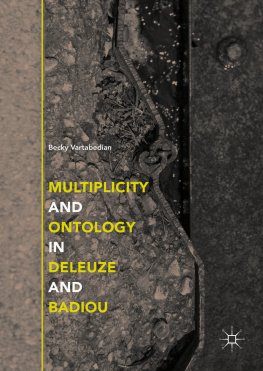
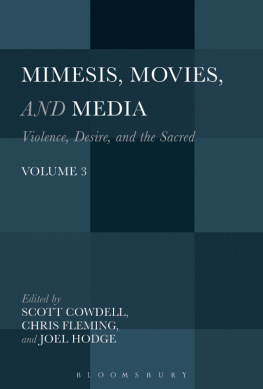

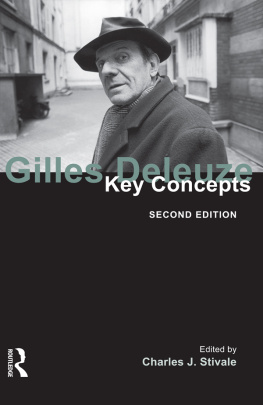
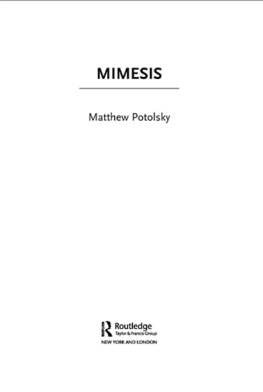
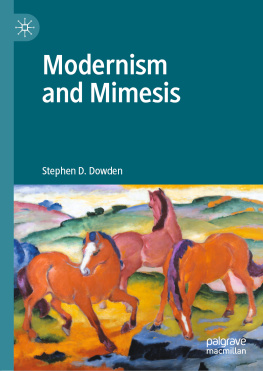
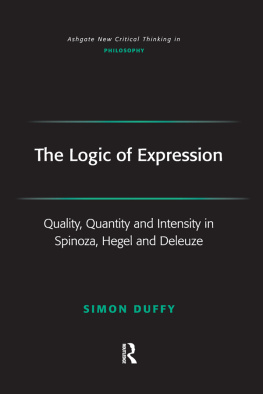
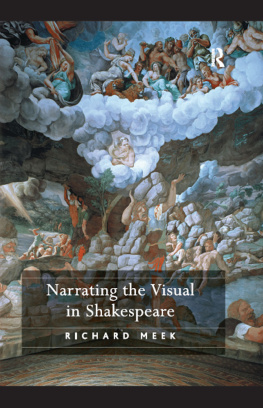
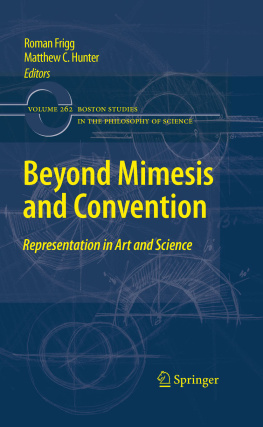
 TM The paper used in this publication meets the minimum requirements of American National Standard for Information Sciences Permanence of Paper for Printed Library Materials, ANSI/NISO Z39.48-1992.
TM The paper used in this publication meets the minimum requirements of American National Standard for Information Sciences Permanence of Paper for Printed Library Materials, ANSI/NISO Z39.48-1992.